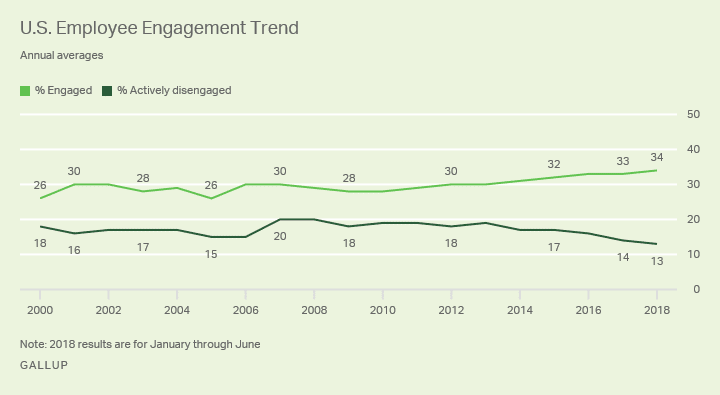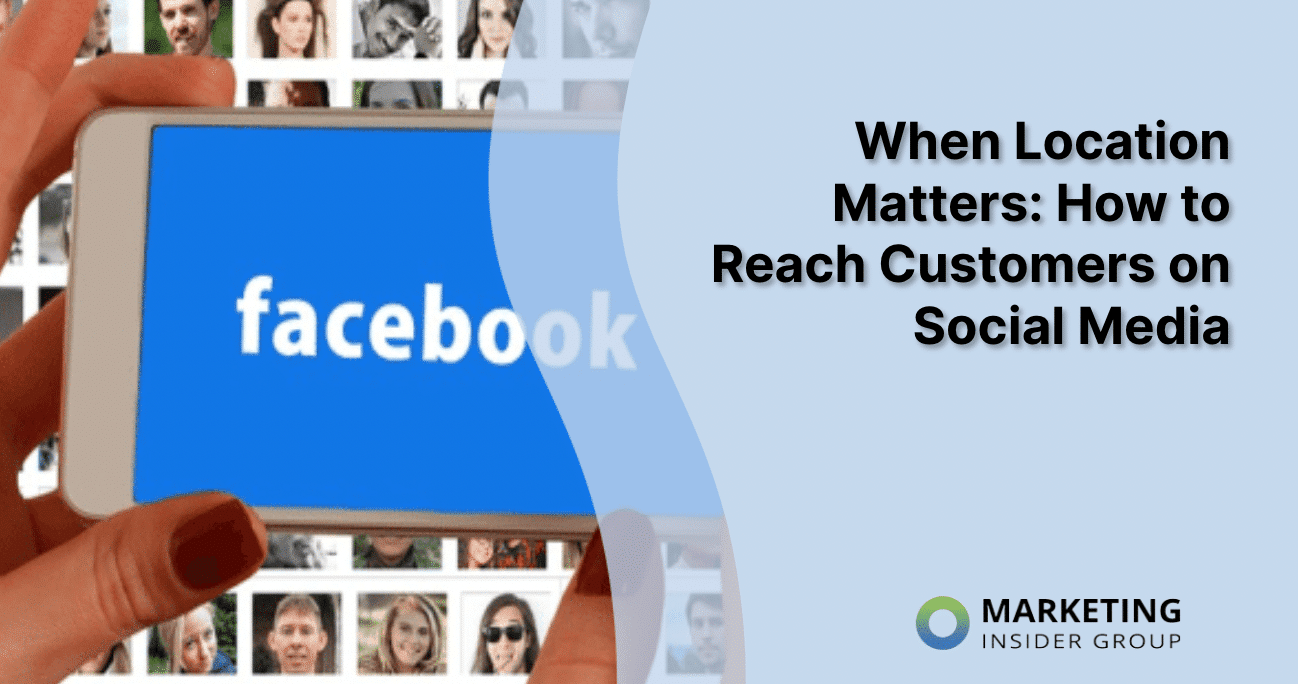
Everyone is Miserable! Nobody Cares! And Why That Matters to Your Business
A recent survey shows that in the midst of the pandemic, when way too many people are out of work, 1 in 4 employed Americans want to quit their job.
Admit it: we’re tired, stressed and just looking for some relief. No matter our employment situation. But maybe there’s a simple tool anyone could use to start to fix it…
Quick Takeaways:
- Empathy in the workplace has a direct, positive correlation with engagement and business outcomes.
- Employees and customers alike think highly of a brand that is aligned with a cause they care about.
- An effective employee advocacy program ultimately results in lasting brand-customer relationships.
We are living in a time of what some have called “empathy deficits.” Lack of empathy is a problem not just in politics, possibly the media, and business overall. There is a clear connection between the amount of empathy in a business’ culture and the measurable engagement of our follow employees
But is it a crisis?
There is some good news. The ongoing study by Gallup found that the number of “engaged” workers, i.e. those enthusiastic about their work, is up by a whopping one point recently and has been steadily rising over the past few years. The study confirms that organizations with highly engaged employees report higher productivity, customer retention, and up to 21% higher profitability than the competition.

But is there a connection to empathy in the workplace? Ironically, we should ask, “should leaders care?”
Empathy is the Driving Force Behind Employee Engagement
Emotions are paramount when you’re trying to grow a business. Empathy forms a crucial part of emotional engagement, be it managing conflict, resolving challenges, performing well within individual or team dynamics, or just being able to actively listen in order to lead effectively.
Specifically, employee engagement powered by empathy has the potential to boost your marketing efforts – it directly influences the amount and quality of authentic brand content produced and shared by your employees. Encouraging your team to share how they work (and how it affects them) on social media is a surefire to build trust and turn them into brand ambassadors for the company. Here’s how market leaders are doing this:
- L’Oréal uses social media hashtags to showcase its culture; employees don the roles of brand spokespeople to keep their community growing.
- Coca-Cola lets employees recommend stories on their corporate blog with a special “Staff Picks” section.
- Dell drives thousands of clicks to their website via a sustainable employee advocacy program that results in roughly 10% of its employees promoting the brand on social media.
- IBM uses short video clips of their employees explaining technical concepts on their blog.

Every employee has a story to tell, you can scale up content marketing while retaining its effectiveness if you can figure out a way to give your employees a voice that resonates in your industry.
Customers Want More Engagement Too
You might successfully get employees to speak their mind and align their values with those of the organization. That enthusiasm can potentially trickle down to customers. However, it is far more difficult for brands to engage and connect with emerging customer segments and demographic groups.
Research from the University of Michigan found that young Americans today have 40% less empathy than they had in 1979. They’re reluctant to appear concerned for other people, despite being perpetually connected to one another. Researchers said information overload caused due to 24-hour internet and cable connectivity could be one of the primary causes.
Indeed, a study by Havas and Vivendi concluded that more than three-fourths of all brands could simply disappear today and no one would care at all!
That doesn’t mean your customers are totally devoid of empathy. Empathy shapes everything from emotion to impulse to political ideology (which is obviously important to every individual customer). The solution for brands, therefore, is to display empathy with what their audience really cares about – and be authentic about it.
“Mass advertising can help build brands, but authenticity is what makes them last. If people believe they share values with a company, they will stay loyal to the brand,” wrote Howard Schultz, chairman emeritus of Starbucks in Pour Your Heart Into It, the amazing story of their unswerving commitment to customer and employee satisfaction.
No surprise then, that cause marketing has picked up steam over the past few years. A Nielsen report on sustainability found that nearly two-thirds of consumers the world over are willing to pay more than market price for products from companies that are known to be environmentally friendly or committed to social values.
But while cause marketing or purpose marketing is decidedly working, CMOs and business leaders are still reluctant to show empathy, take a stand, and speak out on controversial societal issues.
During my research for my book Mean People Suck, many CMOs I spoke to simply didn’t understand the necessity of building a culture of empathy. With one CMO proudly claiming she simply had too many promotional tactics to blast out with the hopes of interrupting her audience.
This may be why brands are struggling to define their purpose or putting their money where their mouth is. “If you do cause marketing, you need to understand it’s deeper and more than a simple campaign,” said Meredith Ferguson, managing partner at DoSomething Strategic, whose research found that marketers are failing to get young people associate their brand with causes that they back, or increase brand awareness and recall in the process.
Empower Employees to Build the Bridge
The onus of building and developing deeper brand-customer connections today lies with employees. Customers will initiate conversations with brands, but not relationships. Meaningful connections are created when company staff members really empathize with customers.
“Empathy is one of the most disarming qualities, especially when speaking to a dissatisfied customer,” says Alex Wilmott of Smith+Co Consultancy. “It is essential that the brand’s language clearly places the power with the customer, and emphasizes that the purpose of the conversation is to bring about a positive outcome for them.”
“Empathy can be inspired, but I’m not so sure it can be trained,” Wilmott surmised. However, research published on PubMed Central established that cognitive empathy is a mutable skill that can be taught!
Neurobiology has progressively changed the perception of empathy from an inborn trait to a soft skill to a competency. And that’s a good thing for brands – so-called “taught empathy” makes up for innate or intuitive empathy when cultural, racial, or ethnic differences exist between the company representative and the customer.
Simply put, it helps recognize others’ perspectives and differentiate between our own and the other person’s emotions.
You can harness the power of empathy in your employees and let them build a bridge that reaches customers’ hearts through your own employee activation program consisting of five simple steps:
- Implement an advocacy program that empowers employees to create and share their own content that builds their personal brands.
- Prioritize this program as a core organizational process. Give employees the tools, resources, time, even recognition, that they need.
- Build a culture that constantly provides new, positive experiences for them talk about.
- Set clear content guidelines but place authentic storytelling at the center of your strategy.
- Recognize and reward advocates according to their efforts and contribution towards building long-term brand-customer relationships.
Tread Wisely and Firmly
Engagement is not a task. Empathy is not a role. Too much of either will dilute the authenticity of your brand message and interactions with customers.
Instead, empathy and engagement should be the pillars of your culture, the foundational values of your workplace. The 2019 State of Workplace Empathy report called empathy “the competitive edge leaders are missing.”
The correlation between empathy and positive business outcomes has never been stronger, and so, it’s every leader’s responsibility to use it as a catalyst of change and driver of performance.
So what do you think? Please consider picking up your copy of Mean People Suck today, and get the bonus audio companion guide as well.
Or check out our services to help evolve your culture, and I’d be thrilled to come present to your team on the power of empathy… Get in touch with me today!






